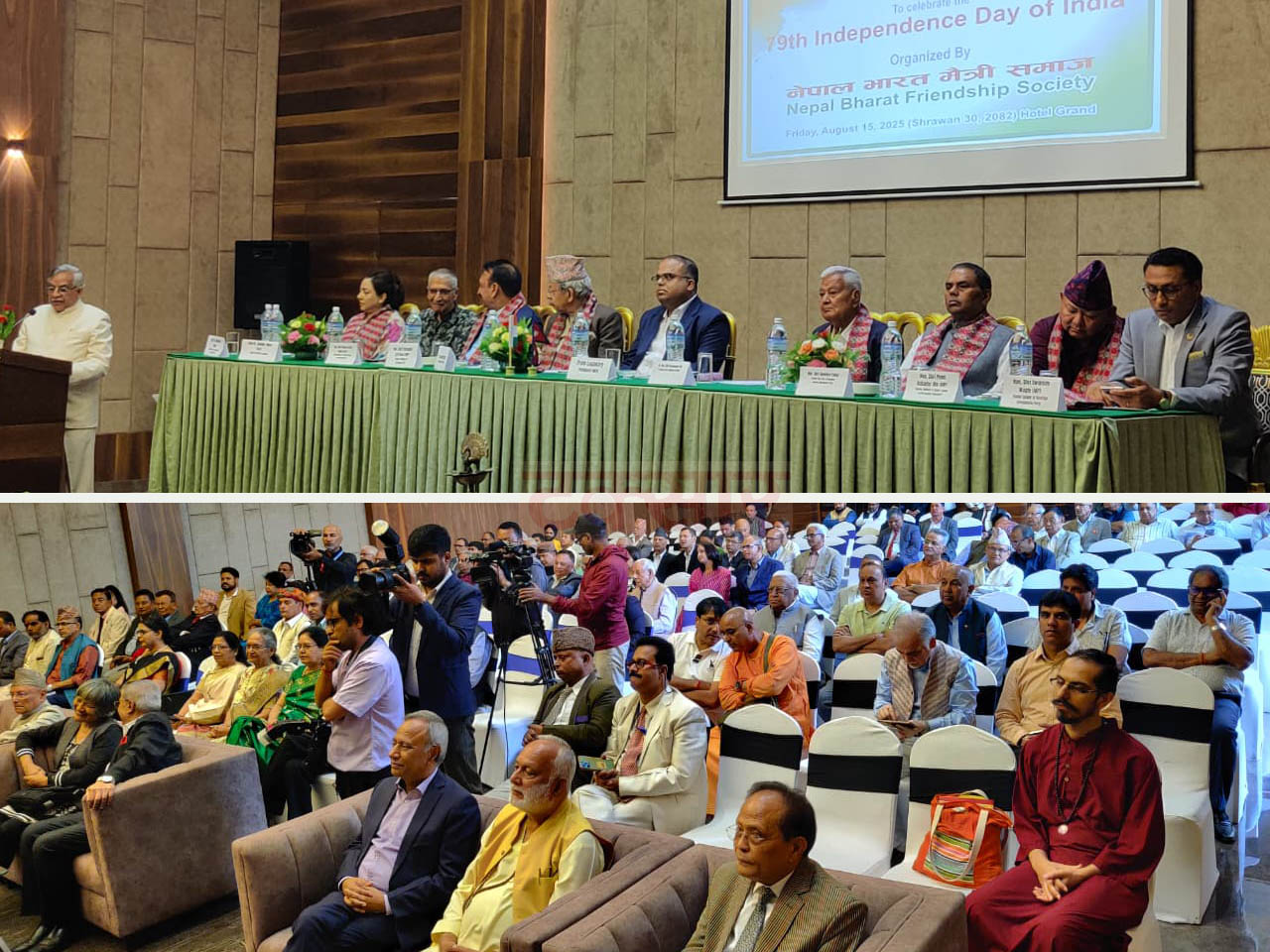Kathmandu — The Nepal–India Friendship Society marked India’s 79th Independence Day with a special goodwill exchange program in Kathmandu on Friday. The event, held at the Grand Hotel in Soltimod, brought together speakers from various sectors to reflect on the ties between the two countries.
Society President Prem Laskari said the organization has been consistently working to strengthen people-to-people relations between Nepal and India. “Our goal is to continuously enhance friendship, trust, and cooperation at the grassroots level,” he stated.
Former President Parmananda Jha highlighted the historic “roti-beti” (bread-and-bride) ties between the two nations, stressing that border-related security challenges should be addressed through mutual understanding and coordination rather than physical barriers.
Former Finance Minister and Nepali Congress spokesperson Dr. Prakash Sharan Mahat said India’s independence accelerated Nepal’s democratic journey.
“Had India not become independent, democracy in Nepal would have been delayed. The endurance of democracy in such a diverse nation is inspiring. Nepal–India relations are multi-dimensional, with vast opportunities for cooperation — from border security to energy, agriculture, and information technology,” he noted.
Civil society leader and senior physician Dr. Sundar Mani Dixit underlined the deep-rooted people-to-people connections and the need to further strengthen them.

Former Prime Minister Pashupati Shamsher Jabara pointed to the marital ties of Ram and Sita and the Mahaparinirvana of the Buddha in India as examples of long-standing cultural and religious bonds that should be preserved.
Former President of the Federation of Nepalese Chambers of Commerce and Industry Bhawani Rana emphasized expanding connectivity and promoting investment to reinforce religious, cultural, spiritual, and trade relations. She urged for greater Indian private sector investment in Nepal.
Former Minister Prem Bahadur Ale noted that around 4 million Nepalis are engaged in various professions in India. “If we can attract even 10 percent of tourists from India to Nepal, it will create jobs and help curb youth migration. Both countries need to work together on infrastructure development,” he said.
Chairperson of the Janata Samajbadi Party Upendra Yadav recalled Nepali contributions to India’s independence movement and Indian leaders’ support in Nepal’s struggle against the Rana regime. He described today’s India as a global power whose diversity offers lessons for Nepal.
Deputy Chief of Mission at the Indian Embassy Rakesh Pandey said Nepal and India’s friendship has endured over time and pledged India’s commitment to further strengthening it in the future.
The program was attended by officials of the Nepal–India Friendship Society, business leaders from both countries, diplomats, political party representatives, social activists, and members of the media.



